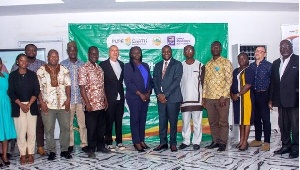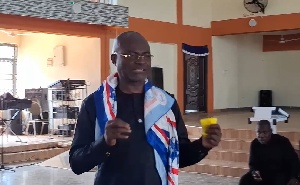Business News of Tuesday, 22 April 2025
Source: www.ghanawebbers.com
53% of children affected by lead exposure – report
A UNICEF study shows that about one in three children worldwide have high blood lead levels. This amounts to around 800 million children with levels at or above 5 micrograms per deciliter.
Dr. Esmond Wisdom Quansah, the Ghana Country Director of Pure Earth, discussed factors contributing to lead poisoning. He mentioned pollution from industrial recycling, informal lead recycling, metallic cookware, and traditional eye-liner as key sources.
“Lead poisoning is multi-generational,” he said. “It can severely damage children's abilities.” The effects include neurological damage, physical health issues, and long-term academic and social impacts.
To address this issue, Pure Earth launched the Northern Ghana Cookware and Cosmetics Project in Accra. This initiative aims to promote safe consumer practices and improve safety standards in the cosmetics and cookware industries.
The event was themed ‘Sustainable solutions for safer consumer products: Recycling lead exposure in Ghana.’ It reflects Pure Earth’s goal of ensuring all Ghanaians access safe consumer goods.
Prof. Nana Ama Brown Klutse, CEO of the Environmental Protection Authority (EPA), spoke at the launch. She emphasized that the EPA will conduct thorough research with cookware producers before their products enter the market.
“The EPA is committed to this issue,” she stated. They will collaborate with stakeholders like Pure Earth and the Ghana Standards Authority (GSA) to eliminate lead in cookware production.
She also suggested mandatory education for producers about the harmful effects of their practices. Dr. Paul Fosu from GSA reaffirmed their commitment to rigorous product testing using accredited laboratories.
He announced that GSA will develop a certification system for local cookware manufacturers. This system aims to ensure that their products are safe for public use.











